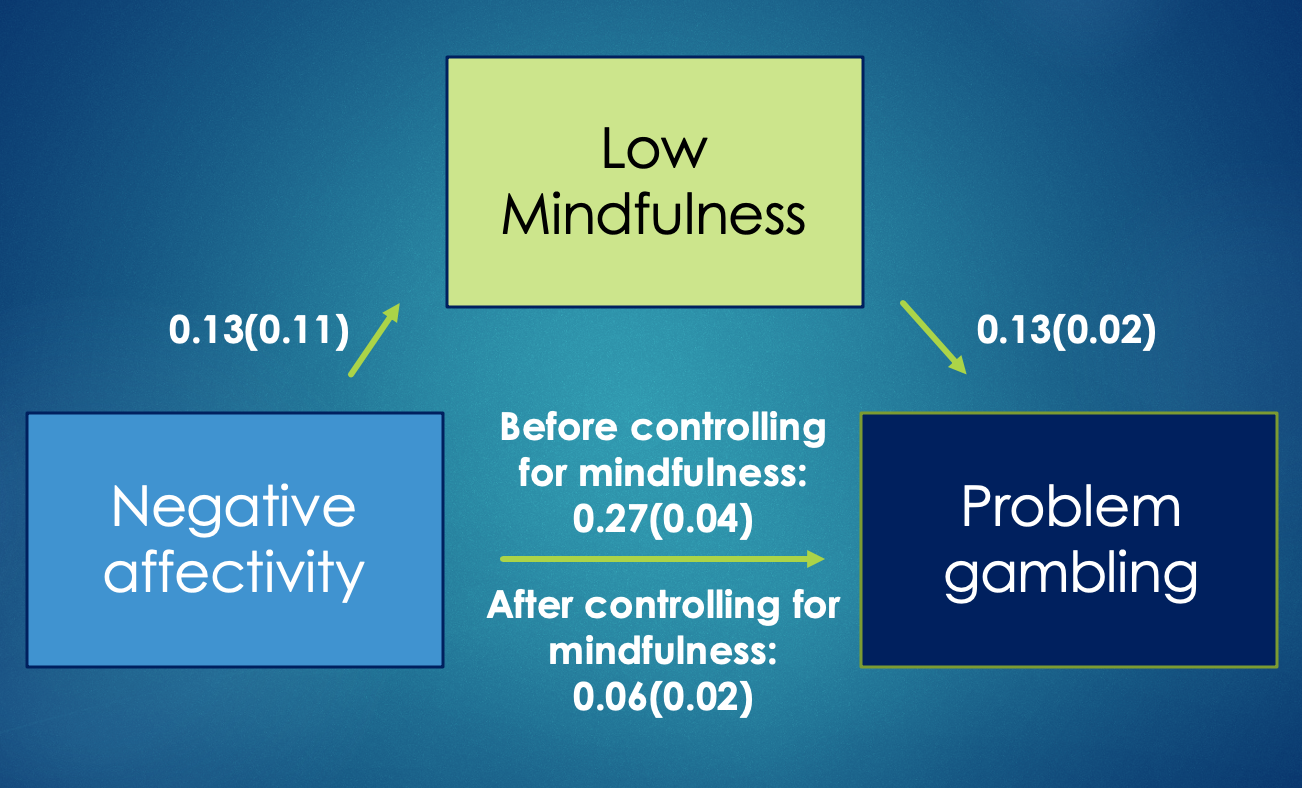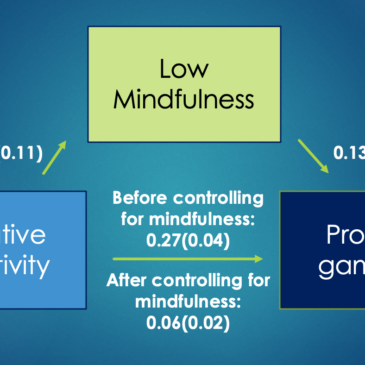Editor’s Note: Can you spare five minutes to tell us your thoughts on The BASIS? Your responses to this short questionnaire will help us improve this free resource and better meet your expectations. Thank you!
Some personality traits, such as impulsivity, are risk factors for problem gambling. However, practicing mindfulness–paying attention to the present moment, and doing so intentionally and non-judgmentally–decreases impulsivity and makes problem gambling treatment more effective. This raises the question of how mindfulness might be used to prevent problem gambling for individuals with personality traits that cause the individual distress and put them at a greater risk for problem gambling. This week, the WAGER reviews an article by Alessia Passanisi and colleagues looking at the relationship between dysfunctional personality traits, mindfulness, and problem gambling.
What was the research question?
What role does mindfulness play in the relationship between dysfunctional personality trait domains and problem gambling in adolescents?
What did the researchers do?
The researchers recruited adolescents from betting and bingo halls in five cities in Italy. Adolescents had to be “regular gamblers,” which the researchers defined as gambling at least once per week. Participants completed measures of trait mindfulness, maladaptive personality traits (negative affectivity, detachment, antagonism, disinhibition, and psychoticism) and problem gambling severity. (All the measures were adapted for children.) The researchers then conducted a mediation analysis to determine whether low levels of mindfulness partially account for any link between maladaptive personality traits and problem gambling.
What did they find?
Several of the maladaptive personality domains, as well as low mindfulness, were associated with more severe problem gambling. As predicted, the association between three of the maladaptive personality domains (negative affectivity, antagonism, and disinhibition) and problem gambling became weak when the researchers controlled for mindfulness. Put another way, low mindfulness partially mediated the relationship between these personality traits and problem gambling (see figure for the mediation model for negative affectivity). These results suggest that adolescents who have an especially difficult time coping with the negative feelings that arise from problematic personality traits are more likely to gamble perhaps as an alternative means of coping.

Figure. Model of the mediating role of low mindfulness in the relationship between negative affectivity and problem gambling in adolescents. The numbers shown are regression coefficients (and standard errors in parentheses); larger regression coefficients indicate stronger associations. All effects included here are statistically significant. Click image to enlarge.
Why do these findings matter?
It is important to understand risk factors for problem gambling in adolescents so that at-risk individuals can be identified before gambling becomes a problem. In addition, it is helpful to know that mindfulness can influence these personality risk factors. Adolescents who are struggling with negative feelings and low mindfulness might benefit from free and easy-to-use interventions, like apps. Suggesting these programs for at-risk individuals is an easy, low-cost method to potentially help this group of people.
Every study has limitations. What are the limitations of this study?
Other characteristics, such as emotion dysregulation or impulsivity, might play an important role in these relationships. Future research could measure these additional variables to try to understand the relative impact that they may have in the relationship between dysfunctional personality domains and problem gambling. In addition, it would be beneficial to assess how personality influences problem gambling over time, into adulthood, to see if personality in adolescence is related to later gambling problems.
For more information:
Do you think you or someone you know has a gambling problem? Visit the National Council on Problem Gambling for screening tools and resources. For additional resources, including gambling and self-help tools, please feel free to visit The BASIS Addiction Resources page.
— Alessandra Grossman
What do you think? Please use the comment link below to provide feedback on this article.




